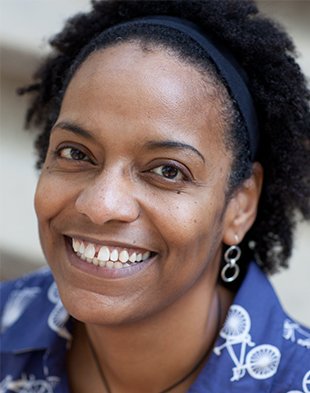Professor Tonya L. Brito
Madison, WI
University of Wisconsin Law School
Barnard College, Columbia University
Harvard Law School
Tonya L. Brito is the Jefferson Burrus-Bascom Professor of Law at the University of Wisconsin Law School and a Faculty Affiliate with the Institute for Research on Poverty (IRP) at the University of Wisconsin. She served as Associate Dean for Research and Faculty Development from 2014-2016 and as Director of the Institute for Legal Studies from 2013-2016. During her time as ILS Director, she organized and hosted numerous academic conferences and speaker series, developed and inaugurated the ILS Law and Society Graduate Fellows Program, and launched the Wednesday Workshop series, an internal works-in-progress series for law faculty.
Professor Brito is a recipient of both the University of Wisconsin-Madison's 2012 Outstanding Women of Color in Education Award and the University of Wisconsin System's 2012 Outstanding Women of Color in Education Award. Through these prestigious awards, Professor Brito was recognized at both the campus and system-wide level for her scholarly research and writing on issues of race and poverty, community service, community building on- and off-campus for an inclusive and respectful environment, and her longstanding commitment to working towards social justice for disadvantaged populations. She is also the recipient of a 2016 Women in the Law Award, from the Wisconsin Law Journal, and a 2014-2015 Feminist Scholars Fellowship, awarded by the Center for Research on Women and Gender at the University of Wisconsin-Madison.
An award winning scholar, Professor Brito's work critically examines the intersection of family law and poverty law, focusing on how the welfare state regulates the family relationships of the poor. She has written on welfare law and policy's impact on the development of family law, the experience of poor families in the child support system, and the image of motherhood in poverty discourse. Professor Brito's recent publications in this area include Chronicle of a Debt Foretold: Zablocki v. Red Hail, 434 U.S. 374 (1978), an oral history research study of a Supreme Court decision involving a successful challenge to Wisconsin's "permission to marry" statute, What We Talk About When We Talk About Matriarchy, which examines and compares the legal treatment and gender dynamics of both poor and middle-class families experiencing financial hardship in economic downturns, and Fathers Behind Bars: Rethinking Child Support Policy Towards Low-Income Noncustodial Fathers and their Families.
Professor Brito is the lead PI on a multidisciplinary empirical research project that investigates how attorney representation and more limited forms of legal assistance affect civil court proceedings for low-income litigants. The project, which is ongoing, examines how different legal assistance models shape legal access in the context of child support enforcement proceedings. Professor Brito has been awarded several competitive research grants to support her project, including two prestigious grants from the National Science Foundation's Law and Social Science Program, one in 2013 and the second in 2014. In 2016, the Law and Society Association awarded Professor Brito the John Hope Franklin Prize Honorable Mention, which is given for the best scholarly article on Race, Racism and the Law published within the prior two years.
Professor Brito is a national expert in the area of child support law and policy and has published widely in the area. Continuing scholarly work in the area of child support includes two current projects. In the first project, Professor Brito is drafting an article, Family Complexity, Inequality and Child Support Enforcement, for publication in a special issue of the Journal of the American Academy of Matrimonial Lawyers. Additionally, Professor Brito is drafting an article for publication that proposes reform of child support rules governing situations of shared parenting. Professor Brito is a member of the executive committee of and a faculty affiliate with the Institute for Research on Poverty and has collaborated with colleagues across campus as part of IRP's Child Support Demonstration Evaluation.
Professor Brito's professional service focuses on advancing the interests of poor children and their families. She serves on the boards of the Wisconsin Council on Children and Families and the Center for Family Policy and Practice (CFFPP). On behalf of CFFPP, Professor Brito drafted an amicus brief in 2011 in the Turner v. Rogers case pending before the United States Supreme Court. Her brief analyzed the child support enforcement system's treatment of indigent noncustodial fathers and their families.
Professor Brito received her A.B with honors Barnard College and her J.D. cum laude from Harvard Law School, where she served as Executive Editor of the Harvard Civil Rights-Civil Liberties Law Review, and was a student attorney with the Harvard Legal Aid Bureau. Prior to joining the UW faculty, Professor Brito was a judicial law clerk for Judge John Garrett Penn of the United States District Court for the District of Columbia, practiced complex civil litigation with the law firm of Wilmer, Cutler & Pickering in Washington, D.C., and served on the law faculty at Arizona State University College of Law.
